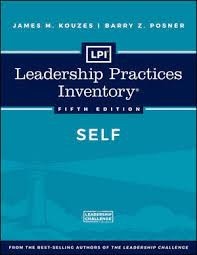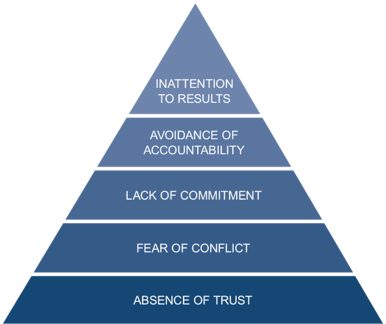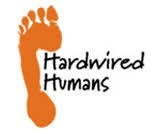Tools and Diagnostics
In delivering our training programs and coaching, we may make use of diagnostic tools and psychometrics, which can provide valuable additional information and insights into your challenges.
Managing Director, Ros Cardinal is accredited in more than 20 of these to date, and she would be happy to discuss the merits of various tools with you.
Watch the video as Ros talks about how to select the right tool for your needs.
Below is a brief description of some of our most commonly used psychometric and diagnostic tools. These include multi-rater / 360 degree assessments.

The Women's Leader Archetypes Assessment
Do you know your unique “Leadership DNA”?
Your leadership archetype is the key to your continued success – and in that success being effortless. If you want to discover your archetype, master her subtle success markers, and discover the leadership opportunities that come easily to her, this assessment is included in some of Ros' select coaching packages and programs.
Ros' Women's Leader Archetypes are amazing. The intuitive quiz really helps to identify those attributes that enable us to succeed and be our best. I found the archetypes descriptions a creative and interesting approach to defining leadership types, especially for women looking to define themselves as unique. I am equal parts Sovereign and Warrior, and while there were some similarities, both types applied in equal measures to my personality, the way I approach my work, and how I define success. This process has caused me to think about how I promote myself, my talents and my unique offer. Jennifer Wittwer

Human Synergistics Life Styles Inventory™ (LSI)
The Human Synergistics Circumplex provides a way to “see” what drives human thinking, behaviour and performance – at the individual, leadership, group and organisational levels. It breaks down the factors underlying performance into 12 ways or “styles” of thinking, behaving and interacting.
The Life Styles Inventory (LSI) identifies the underlying thoughts and motivations that guide your behaviour. The LSI is a multi-rater / 360-degree assessment that provides a powerful measure of both the your intent and your behaviour as experienced by others.
Group Styles Inventory™ (GSI)
The Group Styles Inventory (GSI) is a team based diagnostic measure, assessing the behaviours observed by your team members during a team decision-making session. The GSI measures the constructive and defensive elements of group processes with the 12 styles used in the Human Synergistics circumplex.
Leadership Impact™ (LI)
Designed specifically for those in leadership roles – primarily senior managers and CEOs – Leadership Impact (LI) represents the cutting edge of research into leadership effectiveness. LI is a multi-rater / 360 degree assessment that provides you with unique insights into your leadership strategies and the impact of these on the behaviour and performance of those people you lead.
Organisational Culture Inventory (OCI) and Organisational Effectiveness Inventory (OEI)
The Organisational Culture Inventory® (OCI) is a powerful instrument that examines how members of an organisation experience its operating culture. It validly and reliably measures styles of behavioural norms and expectations that members of an organisation might be expected to adopt in carrying out their work and interacting with others.
The OCI also measures key cultural outcomes – role clarity, service quality, commitment and satisfaction – and identifies statistical relationships between the various elements of culture and these outcomes.
Designed to complement the OCI, the OEI identifies the causal factors (levers for change) that influence culture and the outcomes of culture. Using both together provides the very best of behavioural (culture) and perception/attitude measures available today.
Myers Briggs Type Inventory (MBTI) Step 1 and 2
The Myers-Briggs Type Indicator (MBTI) assessment is designed to measure psychological preferences in how people perceive the world and make decisions.
One of the most widely used psychometrics in the world, the MBTI will help you to understand and appreciate differences, increase self-awareness, confirm self-perception, and appreciate and learn to capitalise on your own strengths and those of others.
Mayer Salovey Caruso Emotional Intelligence Test (MSCEIT)
The MSCEIT is the original, scientific conception of Emotional Intelligence and is based upon more than a decade of research by psychologists Jack Mayer and Peter Salovey. The Mayer and Salovey model is guided by three key principles; emotions are critically important to success, people vary in their emotional skills and these skills can be measured objectively. Some of the key applications of the MSCEIT are selection and promotion, career development, executive coaching and leadership development.
4MAT® Learning Type Measure (LTM ®), Hemispheric Mode Indicator (HMI) and Leadership Behaviour Inventory (LBI)
The 4MAT methodology is a practical tool for enhancing communications and for understanding how your learning preferences shape your strategic thinking. Used together or individually, the 4MAT tools transform your understanding of your own learning preferences, your left or right brain preferences and your leadership behaviour.
i4 Neuroleader
The i4Neuroleader model is designed to meet the challenges of today’s world. The business world is now often described using the VUCA model – that is Volatile, Uncertain, Complex, Ambiguous. In order to lead effectively in this new world, we need to change the focus from a skills based model of leadership (suited to the information age) to a much more holistic brain based model of leadership to suit the new imagination age.

Leadership Practices Inventory
Simple without being simplistic, the LPI®: Leadership Practices Inventory® draws attention to an individual’s strengths and areas for improvement as a leader by measuring how often they practice exemplary leadership behavior. While the LPI Self product offers the practitioner increased self-awareness, the LPI 360 assessment goes a step further by illuminating the effectiveness of a leader and by measuring the level of commitment, engagement, and satisfaction of the individuals they lead. The LPI 360+ offers a reassessment opportunity, which measures a leader’s improvement over time.
Based on The Five Practices of Exemplary Leadership by best-selling authors and renowned leadership experts, Jim Kouzes and Barry Posner, talk to us about delivering the LPI and accompanying Leadership Challenge Workshop for your leaders.

Lencioni's 5 Dysfunctions of a Team
Teamwork is the ultimate competitive advantage, because it is both so powerful and so rare. A high-functioning team can achieve its potential, resulting in a more productive organisation. Additionally, improving teamwork is an important endeavour beyond merely helping organisations become more effective. It also reduces the stress and dissatisfaction of the people who populate those organisations, which has a profound impact on the lives of their friends and family members, as well. In the team workshop, team members will not only reach a common understanding of what it means to be a team but, because the workshop is so practical, will also make substantial progress toward becoming a more cohesive team. In the team leader workshop, participants will improve the cohesion and functioning of their teams by applying The Five Dysfunctions model.

Human Instincts
The way we behave at work can be explained through the lens of human instincts. Although we have left our ancestral setting and come to work in offices and factories, our instincts haven’t changed. Our Human Instincts accreditation through Hard Wired Humans, enables us to help you to understand why people behave as they do at work, to apply the insight to practical topics and enhance your personal effectiveness.

Benchmarks and Skillscope
The Center for Creative Leadership (CCL) 360-Degree Assessment Suite comprises 5 leading 360-degree feedback instruments, including:
- Benchmarks® for Managers™
- SKILLSCOPE®
- Benchmarks® by Design™
- Benchmarks® for Executives™
- Benchmarks® for Learning Agility™
Benchmarks® by Design™ can be tailored to reflect the competencies important to your organisation. Choose from CCL’s Benchmarks by Design library of over 90 competencies and derailment factors to design a targeted feedback experience for any leader level.

Thomas-Kilmann Conflict Mode Instrument (TKI)
Successfully used by businesses, educators and organisational development professionals for 40 years, the Thomas-Kilmann Conflict Mode Instrument (TKI®) is the world’s best-selling instrument for understanding how different conflict-handling styles affect interpersonal and group dynamics and for giving individuals the power to choose the appropriate style for any situation.
The TKI® assesses an individual’s behaviour in conflict situations and describes it along two dimensions: assertiveness and cooperativeness. The instrument provides detailed information about how that individual can use the five different modes, or styles - competing, collaborating, compromising, avoiding and accommodating - effectively. The TKI® model demonstrates that these different behaviours are neither good nor bad but simply different ways of dealing with conflict. This research-backed instrument offers a practical way to initiate safe and calm, yet purposeful dialogue, to resolve or manage conflict.
The 5 Languages of Appreciation at Work
Here is an interesting statistic for you. 51% of managers believe they do a good job of recognising their employees, but only 17% of their direct reports believe that the manager recognises them for doing a good job (SHRM/Globoforce 2012).
Not everyone feels appreciated in the same way. Find out which language of appreciation is most (and least) important to you and your team members. Additionally, identify the specific actions meaningful to people within their primary appreciation language.
What are the benefits of regonsing people in a way that works for them?
- Reduction in turnover
- Lower unscheduled absence
- Increased productivity
- Better relationships
- Improved culture and climate
- Better customer outcomes


